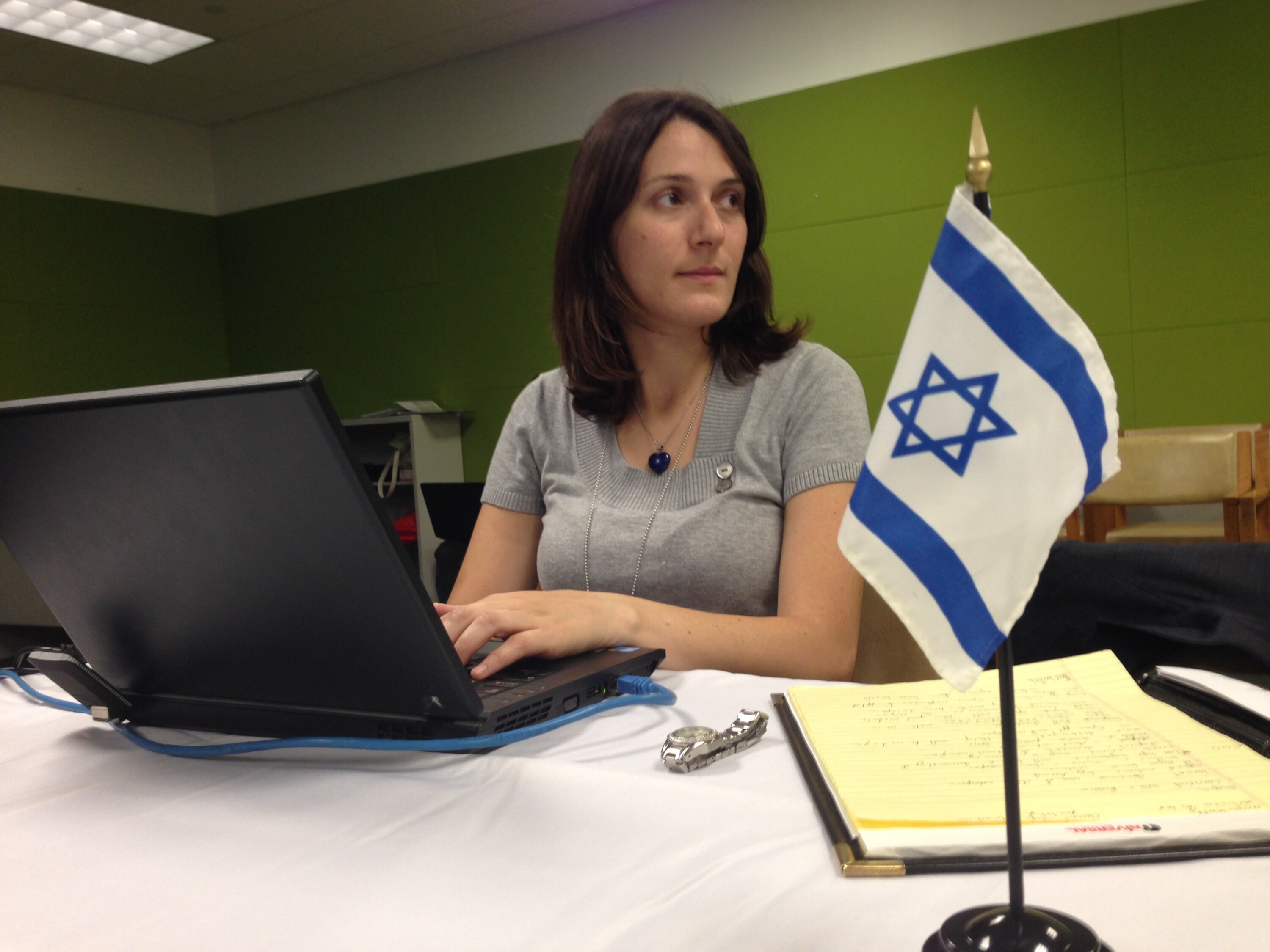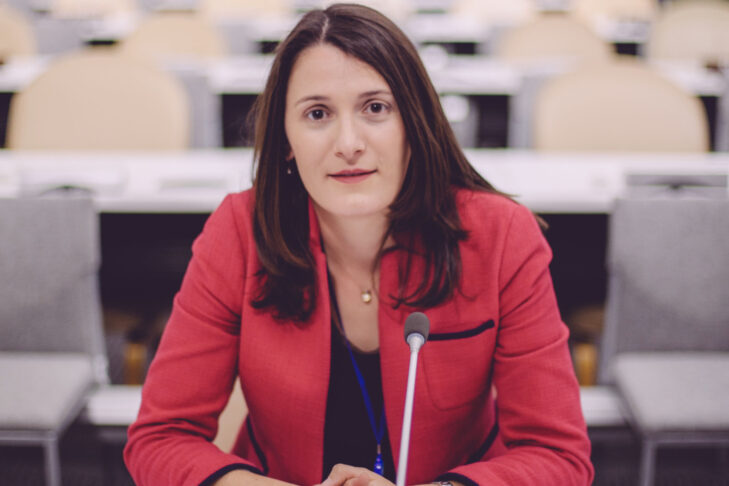Aviva Klompas loved her time as a speechwriter for Israel’s mission to the United Nations. “I was immensely proud to go to work each day to represent the Jewish state in one of the world’s most anti-Israel institutions. It was a remarkable time to be representing Israel on the global stage,” she writes in the introduction to her engaging new memoir, “Speaking for Israel: A Speechwriter Battles Anti-Israel Opinions at the United Nations.”
Klompas, associate vice president of Israel and global Jewish citizenship at CJP, recently spoke to JewishBoston about her book and how she has brought her experience at the United Nations to CJP. “We don’t always think about the contributions Israel has made to the global community,” she said. “In learning about their international development work, I realized that work is significant and deserves to be profiled. This is a remarkable story, which is not being told. That’s something I’ve brought directly to CJP.”
Klompas’s CJP portfolio includes directing “Project Inspire,” a program she established in 2017. Aimed at young professionals from the Boston area, the project brings them to developing countries to learn about Israel’s more than six decades of sustainable international development work. “The project shows how this sustainable international development work is so deeply enmeshed in what Israel is and how it interacts with the world. Think about the United Nations and the trials and tribulations that Israel faces there.”

Israel’s challenges at the United Nations go to the heart of Klompas’s deeply felt memoir. Born in Canada, Klompas studied evolutionary biology and history at the University of Toronto. However, her strong ties to Israel were born out when she led Birthright trips to Israel. She prominently features the organization in her story—she was on her way to Israel with a Birthright trip in December 2012 when she received a call from Israel’s mission to the United Nations to interview for a speechwriter job.
Later in the book, when Klompas had been on the job for over a year, she was leading another Birthright trip. She writes: “As we crisscrossed Israel on our bus I told [the participants] stories and described how my work at the United Nations overlaid the political situation they were learning about.” When Klompas heard that her boss, U.N. Ambassador Ron Prosor, was to deliver one of her speeches, she found a computer in the hotel lobby and asked her group if they wanted to watch. She recalls: “They jumped up, followed me into the lobby, and gathered around the monitor. … I watched my group as they watched the speech. Some of the hotel staff joined us, and they nodded in appreciation at Ron’s words. It was a much-needed reminder of why my work mattered.”
To amplify her point in the book, Klompas said the speeches she wrote often received media attention, allowing her and her colleagues the opportunity to tell Israel’s side of the story. As an example, Klompas cited what she called “the siren speech,” which was delivered during Operation Protective Edge in the summer of 2014. “We wanted the world to understand what it’s like for Israelis, who have as little as 15 seconds to seek cover when rockets are shot from Gaza into Israel,” she said.

Klompas writes that Prosor gave the siren speech to the U.N. Security Council on July 10, 2014. He said: “In the last three days, 442 rockets have been fired into Israel—that’s one every 10 minutes. Fifteen seconds [a siren sound plays]. That’s how much time you have to run for your life.” It was Klompas’s brainchild to embed the siren sound in the speech. Her phone had a Red Alert app with a rocket-warning siren; during the speech, she was Prosor’s right-hand woman as she handed her phone to him.
As she writes: “That 15-second siren became my 15 seconds of fame. The clip was played and replayed on international news stations. I got emails and phone calls from dozens of people saying they had seen me on television handing my phone to the ambassador.” Added Klompas in conversation, “The siren speech was remembered by a lot of Israelis as a speech that showed the world what it was like from their perspective.”
no posts foundKlompas recalled another memorable speech she wrote for the Nov. 29 anniversary of the Partition Plan, which called for the creation of a Jewish state, a day now designated on the U.N. calendar as the “International Day of Solidarity with the Palestinian People.” Noted Klompas: “Each year there are speeches and events that go on in which country after country stands up and accuses Israel of the worst and most heinous crimes. There is a lot of libel going on. I wrote a speech entitled ‘J’Accuse,’ which was printed in full in The New York Times and quoted in The Wall Street Journal. Congressman Steve Israel read parts of it into the congressional record. That was one of the instances when we broke out of the echo chamber and were able to share Israel’s point of view.”
Klompas looks back at her time with Israel’s mission at the United Nations as “a tremendous opportunity.” She beautifully expresses her affection for the work and the colleagues with which she collaborated. “My intention for the book was to share some insight into the stories of the fantastic people I worked with,” she said. “The ambassador and my other colleagues were willing to sacrifice a great deal for what they believed in. This book is my hat-tip to them. My time at the mission was incredibly valuable and meaningful.”



